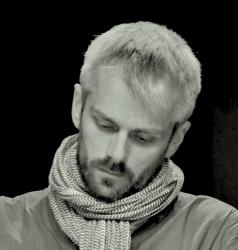Back in April, Prime Minister Sigmundur Davíð Gunnlaugsson apparently made a blunder, when he proclaimed the opportunities ahead for Iceland, in the light of global warming and its expected catastrophes.
The minister was, of course, highly criticised for the cynicism of his remarks. The Icelandic language offers two main ways to change your mind: you can replace your opinion or your head may be turned. When your head gets turned, you, the head’s owner or inhabitant, remain seemingly passive towards the change: it happens to you. Or, to be precise, to your head. This turns out to be quite useful in politics, where people’s heads are often turned without them explicitly replacing their opinions. Accordingly, PM Sigmundur Davíð rephrased his thoughts rather than back out: outraged by people’s outrage, he replied by speaking of Iceland’s duties to seize its opportunities: the duty to produce and export, when other parts of the world will be in need. That’s what he meant all along, he said, while his throat got cleared. Figuratively speaking.
Let’s examine these duties a bit further. Tourism has recently become Iceland’s main export industry, but obviously the minister can’t be speaking of whale-watching or glacier safaris as a response to global catastrophe. In all likelihood he was rather referring to fish and whatever other foodstuff or fundamentals Iceland may produce once those extra two degrees celsius set in. What else might Iceland have to offer?
First, There Was Fishing
In his most recent English-language book, ‘The Structure of World History,’ Japanese economist and philosopher Kojin Karatani suggests that civilization began around great rivers not because the soil in those areas was especially suited to agriculture, but because of fishing: that once large land mammals became rare, vagrant hunters settled near rivers to fish. Once settled, the species discovered the various benefits and complications of staying still: agriculture, yes, but also the need for law, planning, religion, not hating everyone else. In short: first there was fishing, then one thing led to another and here we are.
Fishing as the trigger of civilisation should already sound at least narcissistically attractive to an Icelandic or Icelandophile audience. I am in no position to validate Karatani’s hypothesis or speculate further in that arena. But the fish is not his book’s main point, anyway. The book is an ambitious attempt to explain the history of civilization on the basis of ‘modes of exchange’. There have been three, Karatani says: A) Reciprocal gifts, such as Viking chief practiced; B) Plundering, by which states are founded; and then C) Market-exchange. All three are still with us, represented by the three parts of our contemporary capital-nation-states. During the era of this ABC we are, Karatani says, waiting for mode of exchange D.
The Vatican Boogie
D would resemble mode A, he says, the system of reciprocal gifts, but as a universal paradigm, historically only possible after exhausting our current ABCs. D’s guideline may be phrased as good old ‘from each according to ability, to each according to need’. Yes, it’s communism, but according to Karatani that’s just one of its names. Famously, in a recent interview, Pope Francis is reported to have said that communists stole Christianity’s colors. Karatani would hardly emphasize religion as ‘the real thing’, as opposed to secular movements, but agrees about the parallels. He says that D has historically been called ‘God’s kingdom’, anarchism and various other names. Due to historical complications surrounding each of those, he prefers D.
At the end of the book, Karatani suggests a way towards less ABC and more of D, through gifts: that individual states might give their military sovereignty to the United Nations. Few living authors that I know of have proclaimed any faith in a radical future role for the UN. Yet, Karatani does not come across as a naïve optimist. He seems to find global war more likely than a voluntary series of unheard acts of statist generosity. The generous way is still an option, he says. As gifts always entail an obligation, they may, under the right circumstances, start a chain reaction. Unlike more traditional uprisings, gifts are also very hard to refuse. Now, Iceland has no military to speak of, but it does have its sovereignty.
I’ll Just Leave This Here
Let’s expand on Sigmundur Davíð’s post-apocalyptic ambitions and add the duty —as well as the opportunity— to be inhabited.
There’s a lot of space left in Iceland’s South, East, West and North, not to mention its center. Multiple cities, with millions of citizens each, are waiting to rise and thrive around the country, come that warm season. Do feel free to shake your head at this extravagant idealism and mind more urgent business —I’ll actually do the same, and just leave the memo here for now: We lost our latest chance, but come the next opportunity, i.e. crisis, we might want to keep in mind the option to give Iceland to the UN. It could be done on condition that the new open republic’s constitution will be something very similar to the UN Human rights declaration. Then we invite everyone over. Refugees, stateless persons and other migrants. What PM Sigmundur Davíð seems to have meant —or may have meant, if we just turn his head a little— is that the coming century might be this tribal joint’s chance to become a country. If we only dare to give a little.
There would seem to be fish enough for everyone.
After publication, it was pointed out to me that to say your head is turned is an incorrect translation of the phrase að snúast hugur. More precise would be that your mind got twisted or spinned. —HMH.
Buy subscriptions, t-shirts and more from our shop right here!


















